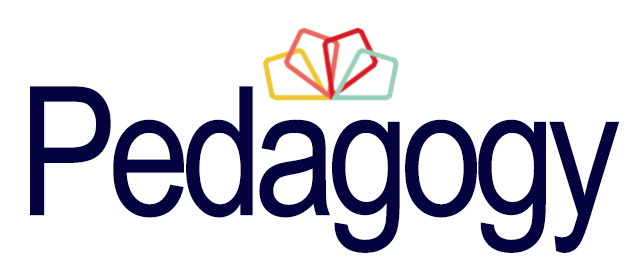
Project overview – scoping & exploration
Evidence shows significant decline in the kinds of long-form reading associated with critical thinking, concentration, and the emotional intelligence needed for student success. Recent scholarship has focused on reading for pleasure pedagogy and the associated area of reading motivation. Staff will train and network with practice-based organizations in the field of reading pedagogy, research reading habits and motivation in a diverse cross section of the local, adult/young adult population, and convene a symposium with stakeholders to explore realistic interventions. The project will increase staff knowledge and form a network to design pedagogical interventions in our local community, applicants and students. The project will pursue sustainable outcomes by forming part of the subject area’s long-term vision for widening participation through community engagement through the pedagogy of reading, and improve classroom experience through the lessons learned.
| The Northern School of Writing Network |
|---|
| Creative Writing Staff, graduates and Alumni |
| Digital Media, Film, Journalism and Podcasting graduates and Alumni |
| Local Publishers and Literary Community |
| English Staff, graduates and Alumni |
Figure 1: Northern School of Writing Network in UoS
| Literacy Network |
|---|
| Institute for Social Innovation |
| Social Mobility Strategy |
| Social Justice Strategy |
| Knowledge Equity Network |
Figure 2: Strategic Potential of Literacy Network in UoS.
Why place-based literacy?
Salford City Council Schools and Learning have identified functional and higher levels of literacy as a key challenge for social mobility and justice in the city and invested in a National Literacy Trust Hub managing activities to help mitigate the issue. The Hub has a ten year plan. The Literacy Network at UoS has formed a new partnership with The National Literacy Trust to support these activities with research, working toward a potential impact case study for the University. By partnering with schools, colleges and charities in Salford, a new literacy network at UoS has the opportunity to bid for research funding that will match Council, GMCA and charitable funding in this sector, boosting the ambition to transform prospects for our local community through literacy interventions.

Figure 3: The scale of the challenge.
Strategic Aims
-
Identify a role for the University of Salford in supporting literacy initiatives in the City of Salford
-
Build a knowledge base around educational partnership literacy interventions.
-
Create a network of research and practice expertise within the University that can focus on literacy and reading motivation initiatives
-
Connect literacy/reading motivation project work to sources of research and practice funding, generating more income for literacy work in the City of Salford
-
Develop a literacy approach to improving the educational standards of local applicants.
-
Enable and support relationships with educational partners
-
Build a recruitment brand identity for English and Creative Writing around community engagement and education, supported by our new modules in teaching, work placement, and literacy champion opportunities.
-
Look toward buying in useful literacy research expertise for funded projects
Progress and achievements
-
Relationship building and new partnerships with our local literacy education stakeholders – National Literacy Trust, Salford City College, Schools, libraries, publishing partners, Early Years Services, youth services.
-
New working group convened with Salford City College, Salford Work and Skills and UoS.
-
Establishment of NLT office on campus
-
Established pipeline of Salford Students as Literacy Champions in schools trained by the National Literacy Trust
-
Free membership for UoS in NLT research network
-
Increased knowledge base about the educational landscape, key players, project work, and research in literacy
-
Internal spend on RA to help build knowledge base – literature review into place-based literacy educational partnerships under way.
-
Internal spend on network incubation literacy symposium for City of Salford, enabling consultation and mapping of needs. 150 attendees confirmed. Research questionnaire to be deployed in this group with aim of producing paper.
-
Internal spend on staff training (David Savill) with The Reader Organisation into shared reading workshop practices
-
Internal spend on Publishers Fair networking 15 regional publishers, completed.
-
Opened discussions with publisher Saraband about bringing the publishing house ‘into’ the University.
-
Embedded Tutor Trust work in English Subject Area Work Placement Module
The Literacy Symposium
The inaugural Salford Literacy Symposium brings together schoolteachers, librarians, booksellers, arts charities, media producers, and representatives from the country’s major literacy organisations for a full day of lectures, workshops, and panels focused on exploring how the city’s literary network can help improve literacy across Salford.
Jackie Kay CBE, celebrated author, Professor of Creative Writing and the former Salford Chancellor reflected on how her parents influenced her love of reading:
“I really love the idea that, by reading, we live our lives alongside the books that we read and that they offer us up alternate ideas of our own identity and of our own self. It’s in books that we first come across the possibility of expanding ourselves. For people that don’t have the experience of being read to, or the ability to read, it’s a very different or limited kind of life that they lead.”
“Imagination isn’t escapism. Literacy is revolutionary. It helps marginalised people envision futures they are told they cannot have.”
Following on from the event, The Northern School of Writing at Salford is now focusing on the creation of its Literacy Research and Practice Network and is looking to host a second literacy symposium next year.

Disclosure statement: All materials included in the poster represent our own work, any ideas that are not our own have been referenced. The work has not previously been published and is not being considered elsewhere. There are no conflicts of interest that have influenced our findings.
